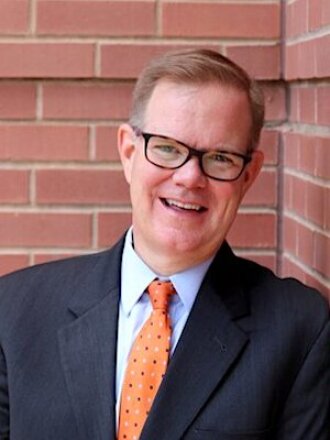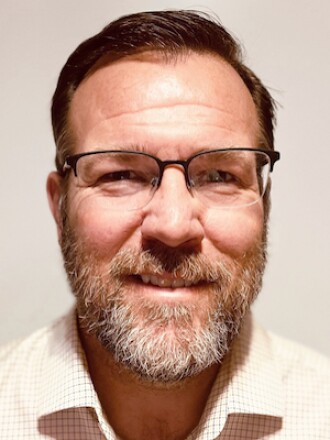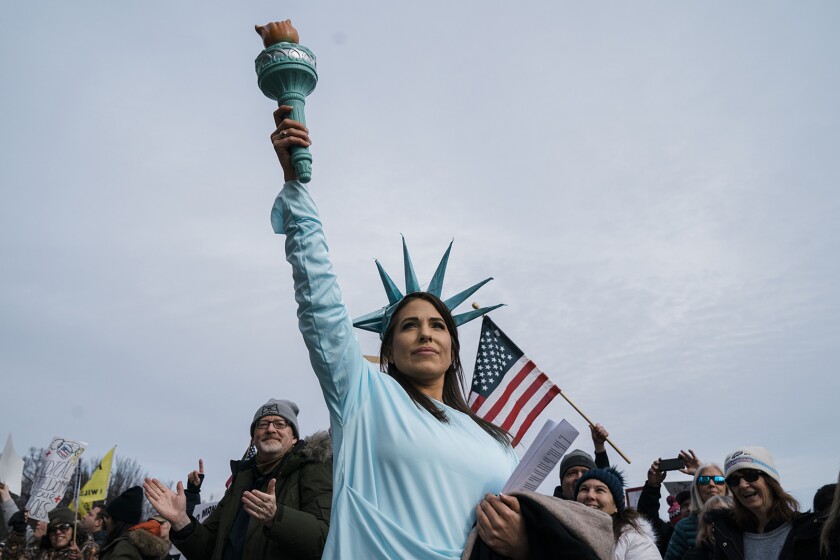However, a “vaccine” is not a “vaccination.” The promise of this accomplishment could only be realized by getting shots into arms. According to a new study from the Commonwealth Fund, in the U.S. alone, since November 2020 COVID-19 vaccinations have averted more than 3 million deaths and 18 million hospitalizations.
A book just published by the American Public Health Association, Vaccinating America: The Inside Story Behind the Race to Save Lives, and End a Pandemic offers an in-depth account of what it took to cross the bridge from scientific breakthrough to the delivery of hundreds of millions of vaccine doses.
The book was written by two public health professionals personally involved in this work: Michael Fraser, the executive director of the Association of State and Territorial Health Officials, and Brent Ewig, chief policy and government relations officer for the Association of Immunization Managers.
“Too often, public health and broader governmental achievements go unnoticed and underappreciated,” the authors say in the preface to their book. “Our intent also is to hold up the COVID vaccination campaign as one of the greatest achievements of modern American government, possible only through the leadership of many and the dedication and commitment of all involved.”
Fraser and Ewig also detail the missteps, omissions, misinformation, messaging mistakes and politicization that have distracted from what Fraser says is a “great American success that both parties could have leveraged.”
Vaccinating America is all the more timely given that COVID-19 variants already in circulation, and new ones likely to emerge, necessitate ongoing immunization campaigns. There are also signs that politically motivated attacks on vaccination and public health leaders will continue. Recently, Florida Gov. Ron DeSantis called for a grand jury investigation to look for evidence of “crimes and wrongdoing” in his state in relation to COVID-19 vaccines, a move that some see as a test run of a presidential campaign theme.
In a conversation with Governing, Fraser and Ewig talked about why they wanted to write their book, its intended audience and what they learned in writing it.
Governing: How would you describe Vaccinating America? Is it a history? A political book?
Michael Fraser: The intent was to tell the story of what it takes to make a vaccine a vaccination. There was so much coverage of the science of this, and so much debate about the mRNA vaccine and the miracle that it was — but behind the simple act of pulling up into a CVS, getting out of your car, sitting in a folding metal chair in the greeting card aisle and getting a vaccine were countless hours and dollars.
Most of America doesn’t understand what it took to make that moment possible, and that was a story well worth telling.
Governing: That’s not unlike what’s been happening with election administration.
Michael Fraser: Right. These government services are relatively invisible, and everybody takes them for granted. This was the moment for public health, and our members worked so damn hard. It was the aim of the book to make their work more visible.

(ASTHO)
Brent Ewig: We get it that people are sick of talking about COVID-19 and want to move on, but we wanted to get these facts and recollections while they were fresh and get them on the record to inform future planning.
When things go wrong, people see that and there's accountability for government. This is something that government got mostly right. We’d be the first to acknowledge that it couldn't have happened without hundreds of thousands of private-sector partners, but the core of this work was done by committed public health servants.
We've lost so much trust in all sectors of society through the pandemic. We wanted to challenge that narrative — if you got your shot, maybe think twice and see what went into that and what your taxpayer dollars supported. The pandemic has cost trillions, but the whole vaccine enterprise is about $40 billion in taxpayer money and was hugely bipartisan.
We want to celebrate this as a bipartisan victory and probably one of the best public investments in history.
Governing: As you document in the book, various events have interfered with that kind of celebration.
Michael Fraser: This moonshot, this sort of moon landing could have been the best way to unite everybody in this national, regional and global pandemic, with government as a hero. Instead, it was used for political purposes to undermine the investment and the folks that were doing the work.
Watching how things have evolved, with the new debate over COVID-19 vaccine safety, I don't know what folks on that side will think when they read the book. I can't wait to hear about it. I'm sure I will.
Governing: Who are the readers you imagined?
Michael Fraser: The public health professionals who did the work. Policymakers, so they could truly understand what public health does.
Brent Ewig: Future public health leaders and policymakers who maybe didn't live through the pandemic, who can study what went right and where there were challenges, to learn from that and, hopefully, avoid missteps in the future.
Everybody on the planet has had to think about vaccines in ways that perhaps they didn't before. Initially, we thought we had an audience of 8 billion. We’ve lowered our expectations and our sights a little bit, but I would hope that anybody that can recall going down to the drugstore, the doctor, the stadium or wherever they got their vaccine would be interested to know the story behind how it got there.
Governing: Could the book change readers’ perceptions of public health work?
Brent Ewig: I've been really worried seeing how hard the pandemic has been on the workforce, the people leaving and the turnover. I thought, if you're a student why would you want to sign up for that level of abuse, threat and hate for trying to save people's lives?
The great news is that the deans that we're talking to in public health schools have said they're seeing increases in applications for schools of public health. At first, I was a little baffled by that, but on the other hand, you have new data out this week from the Commonwealth Fund showing that this effort saved 3.2 million lives.
Who wouldn’t want to be a part of that? Who wouldn't want to have that be part of their legacy? The inspirational side of this is that people have seen that public health is out there — yes, we're getting some flak but we're working to save lives and we're showing results.
Governing: Both of you were inside the work to make vaccination possible. Did you discover things you didn’t know?
Brent Ewig: We knew how hard it was to repeatedly ask for better coordination and communication. I think we have a better understanding of why that was happening. We knew the challenge of advocating for resources for states and localities, and I think we have a clear picture of the reasons that that was being blocked.
The M.O. [modus operandi] of HHS was to tell the corporations money is not an object. The return on investment is infinite, so just tell us what you need. But when it came to public health, public sector, it was, “We don't trust you and, and we don't think you need this.” That was tragic and there should have been a better understanding there.
Michael Fraser: I was mostly working with state health officers and with our CDC experts. What Brent brought to the book was the immunization manager perspective. I don't think anybody knows who their state immunization program manager is. That group and the expertise they had with the existing system was something that was illuminated for me.
We learned that things such as using existing HHS plans for pandemic influenza preparedness and response, or talking about what worked with H1N1 to make sure we didn't repeat mistakes, never happened. So much of what caused frustration could have been avoided if it had. We are trying to show that we shouldn’t do that again.
Governing: COVID-19 is still with us, as are other diseases for which there are vaccinations. The anti-vaccination pushback that complicated COVID-19 efforts has a long history, as the book shows — how can that be addressed?
Brent Ewig: I’m an optimist, and I feel we can find common ground. Nobody wants to be part of an unraveling that's going to lead to preventable suffering. Nobody wants to see children dying of diseases that we have safe and effective vaccines for; if we can turn down the temperature on the rhetoric, we can make progress.
Parental support for vaccination requirements for school entry has dropped from 84 percent prior to the pandemic to 72 percent. As shocking and alarming as that is, what politician wouldn't want 70 percent of the votes? That's a landslide. I think that once they look at it, they may realize that they are playing to a fringe. People still understand that vaccination saves lives.
Governing: Public desire to get vaccinated is essential to the success of vaccination efforts. You give examples of messaging from both presidents that proved to be counterproductive. Who’s best qualified for this job?
Michael Fraser: What we know from the evidence is physicians, especially one's personal physician, are most influential in decisions about vaccination. We know that government officials, whether they're health officers or the president, are not. Those data are pretty clear and have been for a long time.

(AIM)
You're actually pointing to a deeper problem in all this, which was who was the spokesperson? Was it the CDC director? Was it Dr. Fauci, the National Institute director? Was it the surgeon general? The HHS director? The minute people started thinking Fauci was the CDC director, I said, “We’ve got a really big problem here.”
For me, the default would have been the surgeon general or the CDC director, the head of the agency that's theoretically responsible for infectious disease and works with all the states, in a white coat doing a daily briefing with the president behind them, supporting them all the way.
Brent Ewig: There's the communication on safety that needs that physician in a white coat. Then there are other questions on logistics, and Americans were confused. When will the vaccine be available? How much is available? Who's first in line? How will I know where I am in line?
Answers to many of those questions weren't communicated clearly yet are easy to predict. That needs to be fixed, so the American people will know where to get trusted information on both the safety side and the access side.
Governing: One of your recommendations is the creation of an entity that could handle disinformation about vaccinations. How might that work?
Michael Fraser: It's vital, especially now. There has to be a concerted effort to deal with the social media side of this, which is going to take millions. It's going to take a lot of technology, a lot of people who are fluent in all of that. It needs to be a federal investment that plays out in the states or in regions, because some states need it in Spanish, some states need it in Vietnamese, some states need people who look a certain way.
I have a dream of getting a grant and putting 20 Generation Z folks in a room with their phones and computers and saying, “Go at it, and come up with the best stuff you can.” I don’t know if I’ll ever get it, but that’s my dream.
Governing: Could the Biden administration’s investment in public health help with this in any way?
Michael Fraser: We hear from states that they can use their new workforce funding to build their communications capacity. I think we are going to see an expansion of public information officers and communication experts in state and territorial health departments. Will that be focused purely on vaccines? I don't think so. Brent, what are you hearing?
Brent Ewig: Not so much specifically tied to vaccines, but on the overall challenge of keeping ahead in an internet-connected world. People believe the first thing they hear, and if it’s misinformation, we’re starting behind the eight ball.
Governing: Your book includes multiple recommendations regarding various aspects of vaccination campaigns. Are there high-level takeaways you might want to mention?
Michael Fraser: The importance of credible messengers, and people believing that government's role is to protect them.
We are a federalist system, and that is what the first chapter of the book is all about. In D.C., we see policymakers thinking there’s going to be one way that things work that will be pushed out through the states. CDC doesn’t respond; response happens through the states. It was important to make the public health system more visible and understood.
The fact that we haven't had a formal, structured review of COVID-19 response is shocking to me. The only reports that have come out are partisan reports from oversight committees, versus a more objective, nonpartisan review of the action.
We're going to make the same mistakes because the players change, which is probably why it happened the way it happened with COVID-19.
Brent Ewig: We may want to be done with the virus, but the virus might not be done with us. We need funding in place in advance to be ready to deal with that.
If we've learned anything, it’s to expect curve balls. We’ve got to be trained and funded to hit the curve ball when it comes. And we’ve got to rebuild the trust that has been lost.
Related Articles















